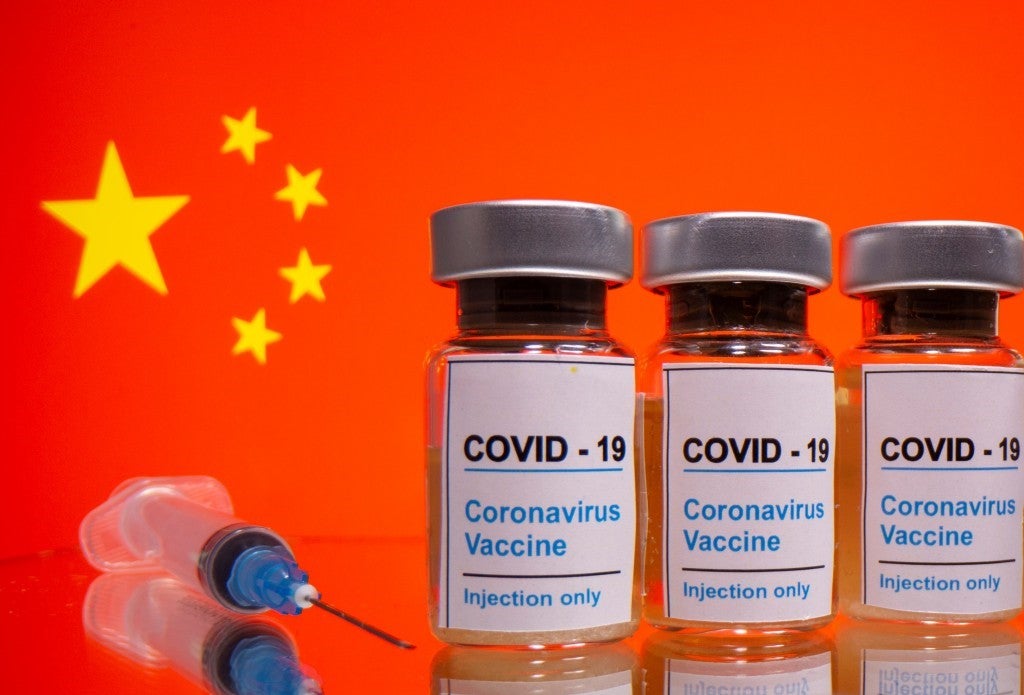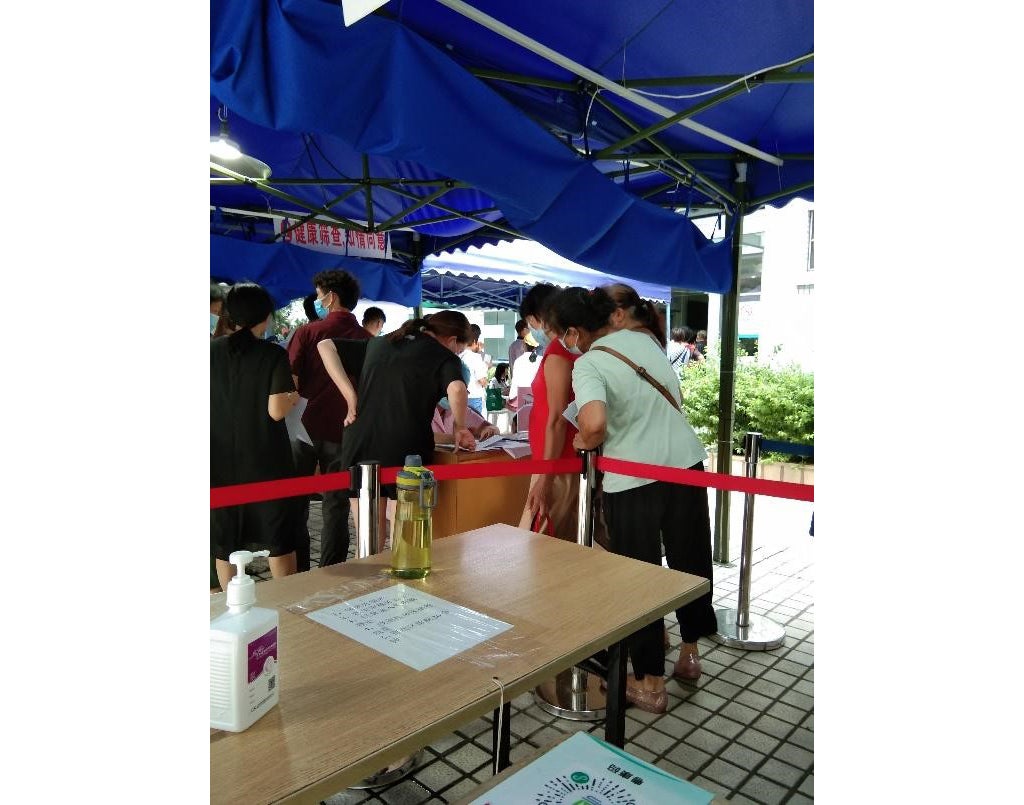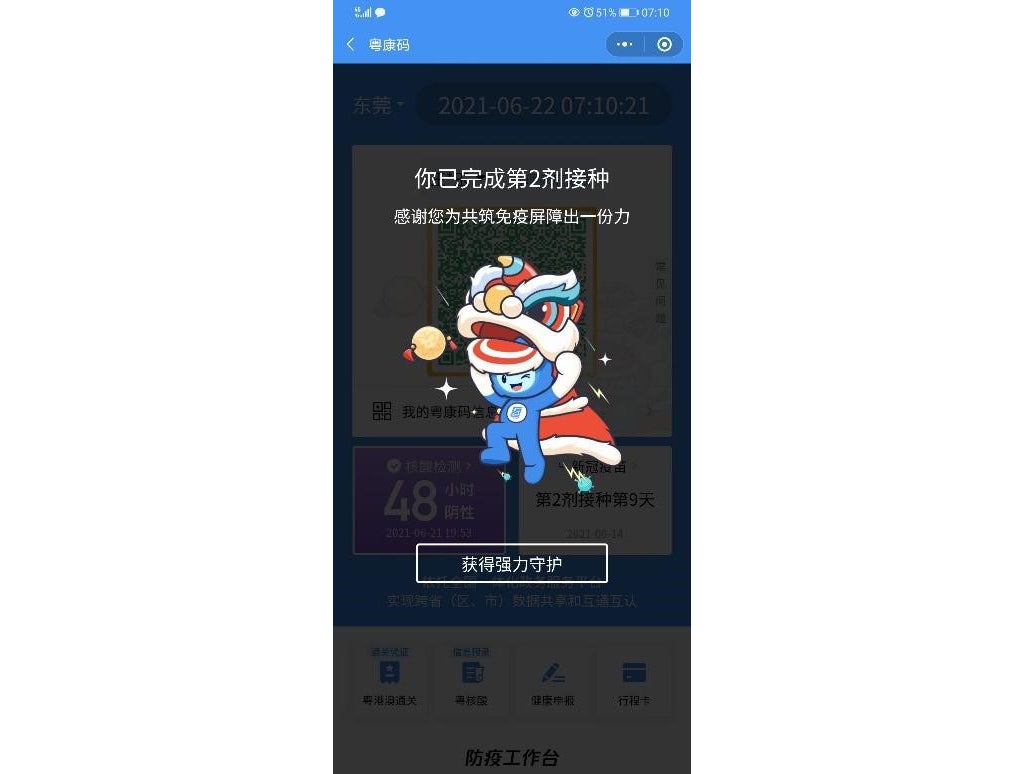Building National Identity Through Immunity: The Politics of the COVID-19 Vaccination Campaign in China
contributed by Xuanxuan Tan, 12 December 2022

China launched a mass COVID-19 vaccination campaign on December 31, 2020, after the approval of domestic vaccines for emergency use. Approximately 1.1 billion Chinese people were fully vaccinated as of November 25, 2021. A total of 2,456,617,000 vaccinations have been administered to almost 88% of the population. In other words, more than 165 vaccine doses per 100 people have been given.
As China grapples with COVID-19, the Chinese public has adopted different attitudes toward the government's rigid epidemic prevention and control measures. One popular response has been to avoid “burdening the state” (buyao gei guojia tianluan, 不要给国家添乱).
People with this attitude emphasize the importance of obeying epidemic prevention and control measures, collectivism, patriotism and a sense of social responsibility. As Nancy, a university student, argues, “not burdening the state” means that if the state needs you to stay home, you do it. If not, you might burden the state. May, a college teacher, emphasizes that “not burdening the state” reflects a “big picture view” (daju guan, 大局观) considering everything in the long term, along with patriotism cultivated by the state and education system, and involves consciously obeying rules and regulations.
“Not burdening the state” involves trust in the government and a rational assessment regarding the national response to the crisis. People believe that China’s success in controlling the pandemic at an early stage demonstrates that the state and government are trustworthy and competent. The rational assessment involves measuring the gains and losses related to obeying anti-pandemic measures. Jack, a computer programmer, believes that “not burdening the state” is vital. In his opinion, if everyone obeys the official pandemic prevention measures, the government can contain outbreaks as soon as they occur, everyone’s health will be protected and life can go back to normal sooner. In other words, the pros of “not burdening the state'' outweigh the cons.
This attitude shapes vaccine acceptance and the role of vaccines and immunity in China’s responses to COVID-19.
Vaccination motivations
The public’s vaccine uptake is driven by “not burdening the state.” Ai, sharing a post on Sina Weibo, says, “Today, I will receive the third dose and not burden the state after I recover from a cold.” Dong, a resident from Qingdao, Shandong, shares his vaccination experience, saying, “It is a bit late, but I successfully got the first dose after queuing for two hours. It is good to be a person who does not burden the state.” Getting vaccinated voluntarily and not burdening the state are requirements for being Chinese, considered must-do tasks rather than personal choices.

Figure 1. At a vaccination site in Xinhui, Guangdong, people undergo medical health assessments and sign informed consent for vaccination. (Photo by the author on 30 July 2021)
Mandy is a middle-age man who works in a karaoke shop in Dongguan, Guangdong. Sally and Canny aged 20-30 live in Guangzhou, Guangdong. Sally is a secretary working for a tech NGO. Canny just resigned from his post as a grassroots civil servant when receiving my interview. They accepted vaccination to obey the state or official sectors’ arrangements, responding to “the call from the state.” For some of the other residents, they got vaccinated when they heard announcements from national authorities, their companies or universities. Getting vaccinated is regarded as a citizen’s duty, driven by people’s trust in the Chinese Communist Party (CCP) and the state. “Not burdening the state” is an ideological position that also works alongside other mechanisms including the concept of building herd immunity,reducing the risk of infection, and the provision of universally free vaccination, all of which influence the public reception of Covid19 vaccines.
Vaccine knowledge
People who get vaccinated to “not burden the state” have different levels of knowledge and understanding regarding vaccine efficacy and vaccine safety. Vaccine safety is associated with vaccine confidence and is more important than vaccine efficacy. Jim is a university student in Guangzhou, Guangdong. Lucas is a young freelancer in the live broadcasting and short-video industry based in Guangzhou. Jim, Lucas, and Sally choose to get vaccinated as they believe Chinese-made vaccines are safer than other countries’ vaccines and are reliable. Sally gains information about foreign vaccines from Chinese official media, and she trusts the news highlighting foreign vaccines cause people's death. She argues that vaccine safety might be negatively associated with vaccine efficacy. Foreign vaccines are effective but are not safe. In contrast, the Chinese-made vaccine with minor side effects is moderate (zhong yong,中庸) and applies to most people. In her opinion, vaccine safety is more important than vaccine efficacy and thus she has more confidence in the Chinese vaccines.
“Not burdening the state” is a powerful ideology that shapes how people respond to vaccine knowledge and lowers doubt surrounding the efficacy of Chinese vaccines. Some residents know that domestic vaccines have a limited ability to prevent infections (vaccine efficacy), but this knowledge is not necessarily associated with vaccine hesitancy, partly because vaccination is a social as well as biomedical process. In contrast, information about low vaccine efficacy makes people stress the importance of strictly obeying prevention strategies and practising strict hygiene measures also in order to “not burden the state.”
Even while believing that Chinese vaccines are very effective, people still consider that process of getting vaccinated as a step towards “not burdening the state.” Mian, a particularly nationalistic Chinese netizen, believes that Chinese-made vaccines are more effective than vaccines developed in Europe and the USA, saying, “#Omicron causes the death toll to exceed #Delta. Just understand, the dynamic zero infection policy is right! In times of internal and external troubles, do not burden the state. Trust the country! According to the data analysis of the fatality rate of Omicron from various countries, my country’s vaccine protection is better than that of European and American vaccines!”
Vaccine, immunity, and the state
For those who got vaccinated to “not burden the state”, vaccinations serve the collective and the state. In this sense, individuals, the collective and the state are linked, and this connection implies that individual safety and health ensure the safety and health of the collective and the state. Vaccination becoming a way to prove a citizen’s value is not only an individual affair but also benefits the collective, the state and the CCP.

Figure 2. In the health code, a message with a cute image congratulating citizens for contributing to the building of “herd immunity” and receiving strong protection pops up after they receive their 2nd vaccine dose. Citizens are encouraged to share this image on social media platforms to express their pride. Credit: Screengrab by the author on 22 June 2021.
The process of mass vaccination is not merely biomedical; it is also political . Vaccine efficacy, vaccine safety and free vaccinations further enhance people’s national identity and promote nationalism. Free vaccination and vaccine safety can become proof of a strong country, shaping people’s imagination and rallying a sense of “us” as national subjects with or without identifying “others.” In this process, vaccination to gain immunity becomes a ritual of practising and showing one’s national identity and patriotism. Citizens present the vaccine-facilitated “national biomedical identity” when digital vaccination records are widely shared via the “Moment” function in WeChat, making public the dynamic between vaccination, immunity and national identity.
The concept of “not burdening the state” plays an important role in validating the mass vaccination campaigns in China. At the same time it also legitimises the (self-)suppression of individual legal rights including personal choice about whether or not to get vaccinated. This process involves the censoring of dissenting or critical voices about pandemic prevention measures and the efficacy of domestic vaccines. In some cases, it has also become a political and moral weapon for blaming people who have not gotten vaccinated, potentially generating social exclusion and online hostility .
The current white paper protests and the eruption of dissenting voices show the limits and negative impacts of the zero covid policy. Most of the information about the protests is censored and there are no official media reports. Some short videos and images about the protest scene are circulated in social media such as Douyin, WeChat, and Sina Weibo. However, most of them are deleted later. Thus, the protests and related information do not receive great public attention. As an obscure response to the protests the Central Political and Legal Committee argues “we must resolutely crack down on the infiltration and sabotage activities of hostile forces (jingwai shili, 境外势力) in accordance with the law.” This response seems to successfully shape the public’s attitude toward the protests.
Some of those who support or used to support “not burdening the state” and receive the protest information show different attitudes toward this political activism. Although Jack agrees that the zero covid policy causes negative impacts on economics and society, he doubts the authenticity of the short videos and worries the white paper used by the protesters could cause trouble for the state and create opportunities for the “hostile forces” as Photoshop is possible on the white A4 paper. “Hostile forces” could add slogans according to their political aims on the paper and represent them as the demands of the protesters when reporting the protest. When talking about the protest, Sally does not know how to define this event and what attitude she should take. Nevertheless, she doubts the motivations of the actions when seeing slogans calling for letting Xi to step down.
“Not burdening the state” dilutes the political potential and public impact of the protest and people who do not participate in the action become more difficult to resonate with, let alone support the protesters. It seems that “not burdening the state” and “hostile forces” are demobilizing the protests and reorienting the public’s attitudes towards it.
Disclaimer: The views and opinions expressed in this article are those of the authors and do not necessarily reflect the position of the blog editorial team or the Asia Research Institute.
South Asia | Southeast Asia | East Asia | Other Places | Hinduism | Buddhism | Islam | Christianity | Other Religions
Xuanxuan Tan is a Ph.D. candidate in cultural studies at the Chinese University of Hong Kong and a visiting Ph.D. researcher at Aarhus University. Her research project focuses on China’s pandemic responses and the complex influences of anti-epidemic technologies on society, politics, and culture. This project intends to illustrate how to study technologies and emerging infectious diseases from an interdisciplinary perspective. Institution personal page: https://www2.crs.cuhk.edu.hk/mpcs/postgraduate-students

